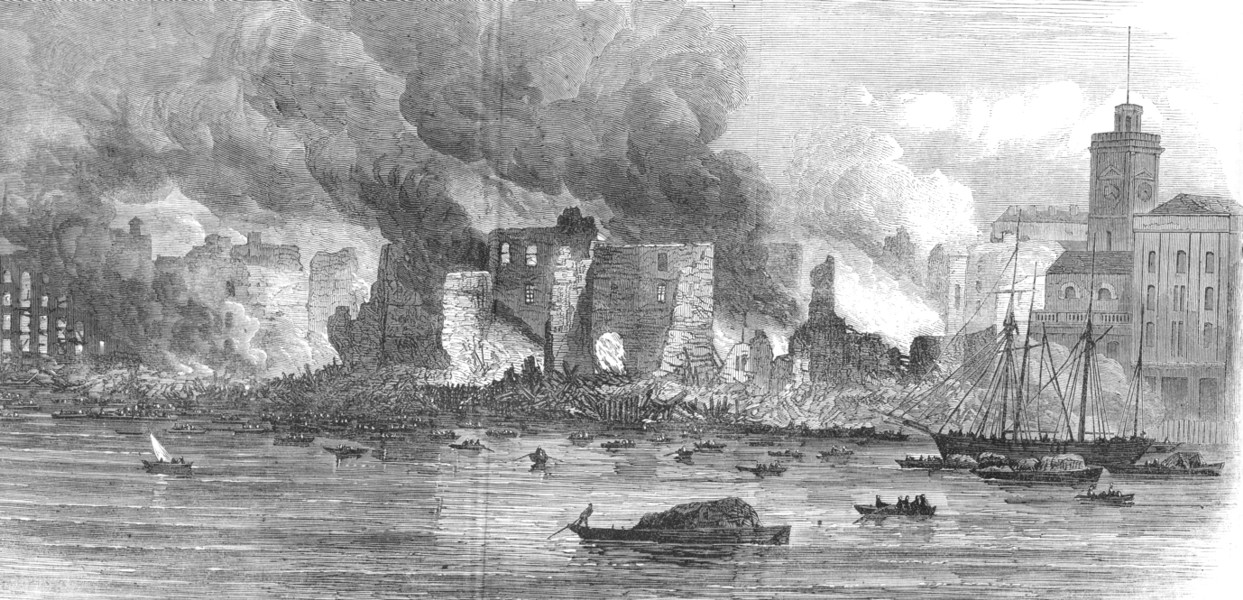The Great Fire in Southwark:
Scene at Cotton's Wharf at Midday on Monday last
Source: The Illustrated London News, June 29, 1861

[document defective here] ... Now commenced his great work of organising and raising to its present standard of efficiency the well-known London Fire Brigade. At the outset he had all the prejudices of the old firemen and their dislike to innovation to contend with, but he overcame all through his indomitable perseverance, unparalleled energy, and great tact and kindness. Never, perhaps, has so much been accomplished with such inadequate means. When we look at Paris, with its one thousand trained firemen, and fire-engines innumerable, with no monster warehouses stored with combustibles to protect, we may well wonder that Mr. Braidwood, with his 120 men, has been so long able to keep the enemy at bay. Without implicit confidence in their chief, and willing and ready obedience on the part of his men, such results could never have been obtained.
In addition to all this, he was the willing adviser of all public establishments upon the subject of which he had more experience than any man living. The various dockyards and arsenals, Royal palaces, and in fact, all Government buildings, have been benefited by his invaluable assistance in the matter of precaution against fire; and we believe that all Building Acts for the metropolis have been subjected to his scrutiny. Every fire brigade throughout the country looked up to him for advice and encouragement which was freely and gratuitously given, and similar applications were continually being made from all parts of the world. For nearly thirty years he was an associate of the Institution of Civil Engineers, to which learned body and the Society of Arts he contributed several valuable papers upon subjects immediately connected with his profession. In private life he was the Christian gentleman, affectionate husband, and devoted father: he has left a widow and six children, three of them boys from eleven to sixteen years of age. For many years he was the sole support of three maiden sisters, two of whom, now living in Edinburgh, survive him. This is not the only loss that Mrs. Braidwood has sustained through the devotion of her family to the public interest. At the great fire in Holland-street, Blackfriars-road, in February, 1855, her eldest son by her first marriage, Mr. T. P. Jackson, met the same fate as her husband.